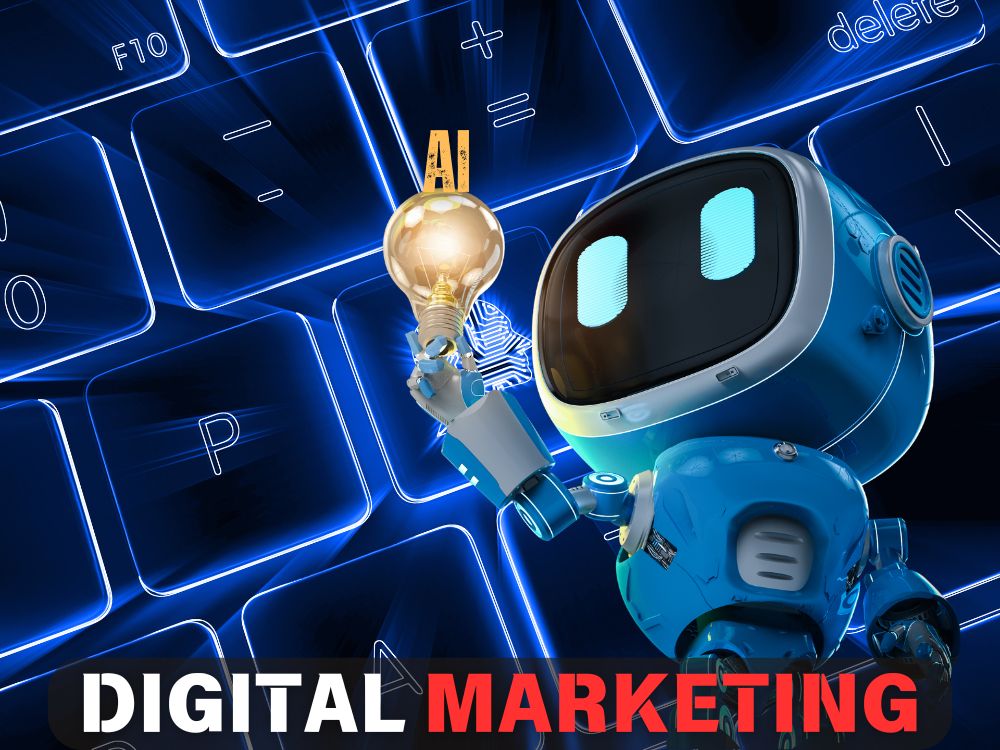Complete Guide on AI Marketing: What Businesses Must Know before 2025 Sta
Are you ready to revolutionize your marketing strategy? 🚀 Artificial Intelligence (AI) is no longer just a buzzword—it’s reshaping the business landscape at breakneck speed. As we hurtle towards 2025, companies that aren’t leveraging AI in their marketing efforts risk being left in the dust. But here’s the problem: Many businesses are overwhelmed by the complexity of AI marketing. They’re unsure where to start, which tools to use, or how to implement AI strategies effectively. This uncertainty can lead to missed opportunities and competitive disadvantages. Don’t let that be you! In this comprehensive guide, we’ll demystify AI marketing and equip you with the knowledge you need to thrive in the AI-driven future. From understanding the basics to exploring cutting-edge trends, we’ll cover everything you need to know to prepare your business for AI marketing success. Let’s dive into the world of AI marketing and discover how it can transform your business before 2025! Basics of AI in Digital Marketing A. Definition and core concepts AI marketing refers to the use of artificial intelligence technologies to automate, optimize, and enhance marketing processes and decision-making. At its core, AI marketing leverages machine learning algorithms, data analytics, and natural language processing to deliver personalized, efficient, and data-driven marketing strategies. Key concepts in AI marketing include: B. Evolution of AI in Digital Marketing The evolution of AI in digital marketing has been rapid and transformative: Era Characteristics Pre-AI Manual data analysis, broad targeting Early AI Basic automation, rule-based systems Current AI Advanced personalization, predictive analytics Future AI Hyper-personalization, autonomous marketing As AI technologies have advanced, marketing strategies have become increasingly sophisticated, moving from simple automation to complex, real-time decision-making systems. C. Key technologies driving AI marketing Several cutting-edge technologies are propelling AI marketing forward: These technologies work in concert to create powerful AI marketing tools that can analyze consumer behavior, optimize ad placements, personalize content, and automate customer interactions at scale. Now that we’ve covered the fundamentals of AI marketing, let’s explore the specific benefits it offers to businesses in the next section. Benefits of AI Marketing for Businesses A. Enhanced customer targeting and personalization AI-powered marketing tools revolutionize customer targeting and personalization, enabling businesses to deliver tailored experiences at scale. By analyzing vast amounts of customer data, AI algorithms can identify patterns and preferences, allowing marketers to create highly targeted campaigns. Traditional Marketing AI-Enhanced Marketing Generic messaging Personalized content Broad audience targeting Precise segmentation Manual analysis Real-time insights B. Improved efficiency and cost-effectiveness AI marketing tools significantly boost operational efficiency and reduce costs. Automating repetitive tasks frees up valuable time for marketers to focus on strategy and creativity. C. Data-driven decision making AI empowers businesses to make informed decisions based on comprehensive data analysis. Machine learning algorithms can process and interpret complex datasets, uncovering valuable insights that might otherwise go unnoticed. D. Marketing Automation AI-driven marketing automation enhances campaign management and execution. From email marketing to social media posting, AI tools can handle multiple tasks simultaneously, ensuring consistent and timely communication with customers. E. Predictive analytics and forecasting Leveraging AI for predictive analytics allows businesses to anticipate market trends and customer behavior. This foresight enables proactive strategy adjustments and more accurate resource planning. Predictive Analytics Benefits Improved inventory management Optimized pricing strategies Enhanced customer lifetime value predictions More accurate sales forecasting By harnessing these AI-powered capabilities, businesses can gain a competitive edge, improve ROI, and deliver superior customer experiences. As we move forward, let’s explore the essential AI marketing tools and platforms that can help you implement these strategies effectively. Essential AI Marketing Tools and Platforms Now that we’ve explored the benefits of AI marketing for businesses, let’s dive into the essential tools and platforms that can help you implement these strategies effectively. A. Customer Relationship Management (CRM) Systems AI-powered CRM systems are revolutionizing how businesses manage customer interactions. These tools use machine learning algorithms to: CRM System Key AI Features Best For Salesforce Einstein Predictive lead scoring, automated task prioritization Large enterprises HubSpot CRM Conversation intelligence, predictive lead scoring SMBs and startups Zoho CRM Zia AI assistant, lead prediction Mid-sized businesses Several platforms leverage AI to enhance various aspects of marketing: B. AI-Powered Marketing Platforms C. Chatbots and Virtual Assistants AI-driven chatbots are becoming increasingly sophisticated, offering: Top 5 Chatbots: D. Programmatic Advertising Platforms These platforms use AI to optimize ad placement and bidding in real-time, improving ROI. Examples include: Read More: AI and Programmatic Advertising: A Marketer’s Guide E. Personalization at Scale AI enables marketers to deliver personalized experiences across various touchpoints: F. Content Creation and Optimization Tools AI is transforming content marketing with tools that can: AI-Powered Content Creation: The Future of Marketing G. Predictive Analytics Software These tools use historical data to forecast future trends and customer behaviors, enabling proactive marketing strategies. You can enhanced decision-making and strategy formulation. H. Brief Comparison, Pricing, Pros, and Cons Tool Category Average Pricing Pros Cons CRM Systems $50-$300/user/month Centralized data, automation Learning curve, data migration AI Marketing Platforms $100-$3000/month Comprehensive features Can be expensive for small businesses Chatbots $0-$1000/month 24/7 availability, scalability Limited complex problem-solving Programmatic Advertising % of ad spend Real-time optimization Requires significant data Personalization Tools $50-$500/month Improved user experience Privacy concerns Content Tools $29-$500/month Time-saving, consistency May lack human creativity Predictive Analytics $100-$5000/month Data-driven decisions Requires clean, extensive data As we move forward, it’s crucial to understand how to effectively implement these AI marketing tools and platforms in your business strategy. Implementing AI Marketing Strategies Now that we understand the benefits of AI marketing, let’s dive into how to implement these strategies effectively in your business. A. Assessing your business needs and goals Before implementing AI marketing strategies, it’s crucial to assess your business needs and goals. This process involves: B. Selecting the right AI technologies Choosing the appropriate AI technologies is essential for successful implementation. Consider the following factors: C. Integration with existing marketing systems Seamless integration is key to maximizing the benefits of AI marketing. Here’s a comparison of integration approaches: Approach Pros Cons Full integration

